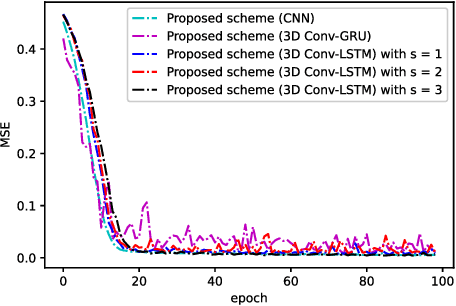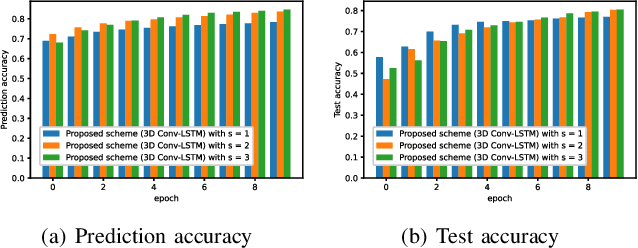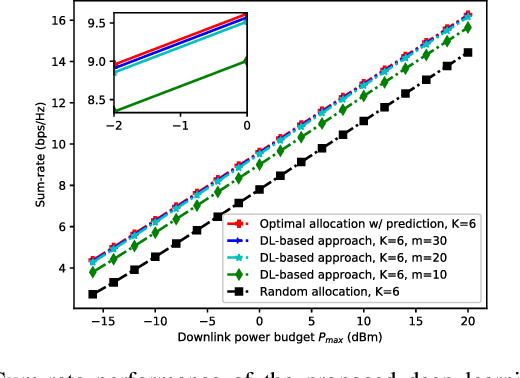Deep Learning and Image Super-Resolution-Guided Beam and Power Allocation for mmWave Networks
Paper and Code
May 08, 2023



In this paper, we develop a deep learning (DL)-guided hybrid beam and power allocation approach for multiuser millimeter-wave (mmWave) networks, which facilitates swift beamforming at the base station (BS). The following persisting challenges motivated our research: (i) User and vehicular mobility, as well as redundant beam-reselections in mmWave networks, degrade the efficiency; (ii) Due to the large beamforming dimension at the BS, the beamforming weights predicted by the cutting-edge DL-based methods often do not suit the channel distributions; (iii) Co-located user devices may cause a severe beam conflict, thus deteriorating system performance. To address the aforementioned challenges, we exploit the synergy of supervised learning and super-resolution technology to enable low-overhead beam- and power allocation. In the first step, we propose a method for beam-quality prediction. It is based on deep learning and explores the relationship between high- and low-resolution beam images (energy). Afterward, we develop a DL-based allocation approach, which enables high-accuracy beam and power allocation with only a portion of the available time-sequential low-resolution images. Theoretical and numerical results verify the effectiveness of our proposed
 Add to Chrome
Add to Chrome Add to Firefox
Add to Firefox Add to Edge
Add to Edge